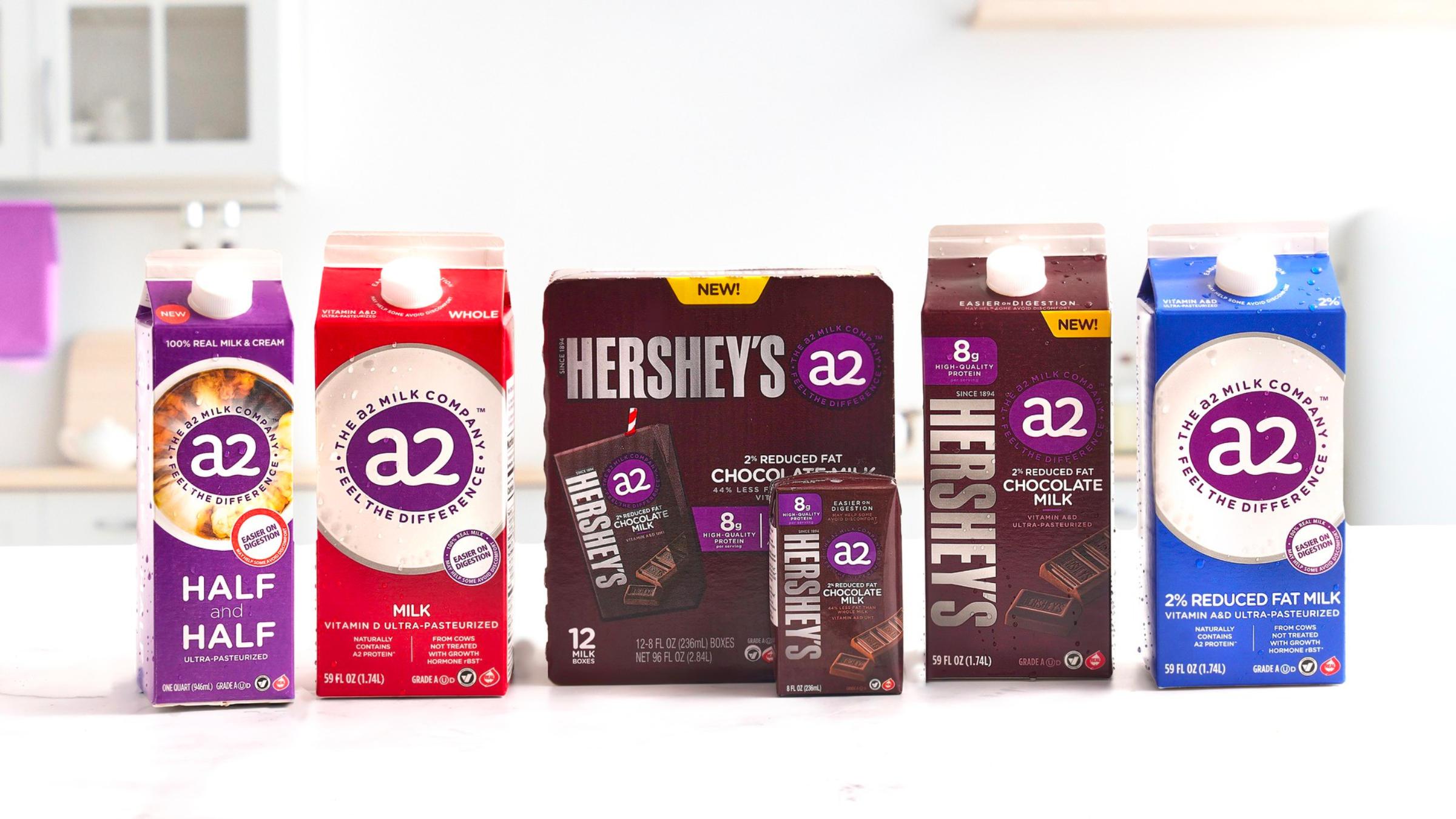What Is The Difference Between A2 Milk vs. Regular Milk?

(Photo: a2 milk )
These days, consumers have dozens of milk varieties to choose from: Cow’s milk, oat milk, cashew milk, flax milk, oat milk, pea protein milk and more. You might’ve noticed a new milk carton in the dairy section with a big A2 on the packaging. This is A2 Milk, a product said to be easier on digestion for people who struggle with dairy but are not allergic. A2 Milk is not a dairy-free alternative.
What is A2?
To explain what A2 Milk is, we have to go over the components of what milk has historically contained. The two major proteins in milk are casein and whey, casein accounting for 80 percent. There are a few different types of casein, one called beta-casein. Two variants of beta-casein are called A1 and A2, which each affect the body differently.
A1 is known to be linked to stomach discomfort and other symptoms similar to those who are lactose intolerant. A2 protein is often compared to the protein found in human breast milk, which is easier on the digestion. One study found that A2 Milk caused fewer symptoms of lactose intolerance than milk mixed with both A1 and A2 proteins.
Other than the lack of A1 protein, A2 Milk is nutritionally similar to regular milk. Both contain calcium, potassium, protein, vitamin B12, vitamin D and phosphorus. The calories, fat and total protein content are identical, therefore many experts don’t suggest switching over from regular milk to A2 Milk unless you’re sensitive and want to try the alternative. It’s important to note that A2 Milk contains the same amount of lactose as ordinary cow’s milk.
There aren’t a ton of studies published that back the benefits of A2 Milk. Many of the studies conducted have been on animals which is not entirely relevant to the human body. The study we do have is not enough to say with 100 percent confidence that switching milks will rescue you from post-dairy bloating, stomach pain and constipation.
An Expert’s Conclusion:
Registered Gastroenterology Dietician Kirsten Jackson has a few takeaway messages for those who are interested in A2 Milk.
- “If you do not have digestive problems related to milk, then A2 Milk will be of no benefit.”
- “If you have regular digestive symptoms, then you must get a proper diagnosis from a doctor.”
- “If medical reasons for your symptoms have been ruled out, you will need to see a registered specialist dietitian to find out what your dietary cause of symptoms are.”
- “Your dietitian may trial you on A2 Milk as a good alternative to regular cow’s milk as there is good evidence to support its use for those identified as having difficulties digesting cow’s milk.”